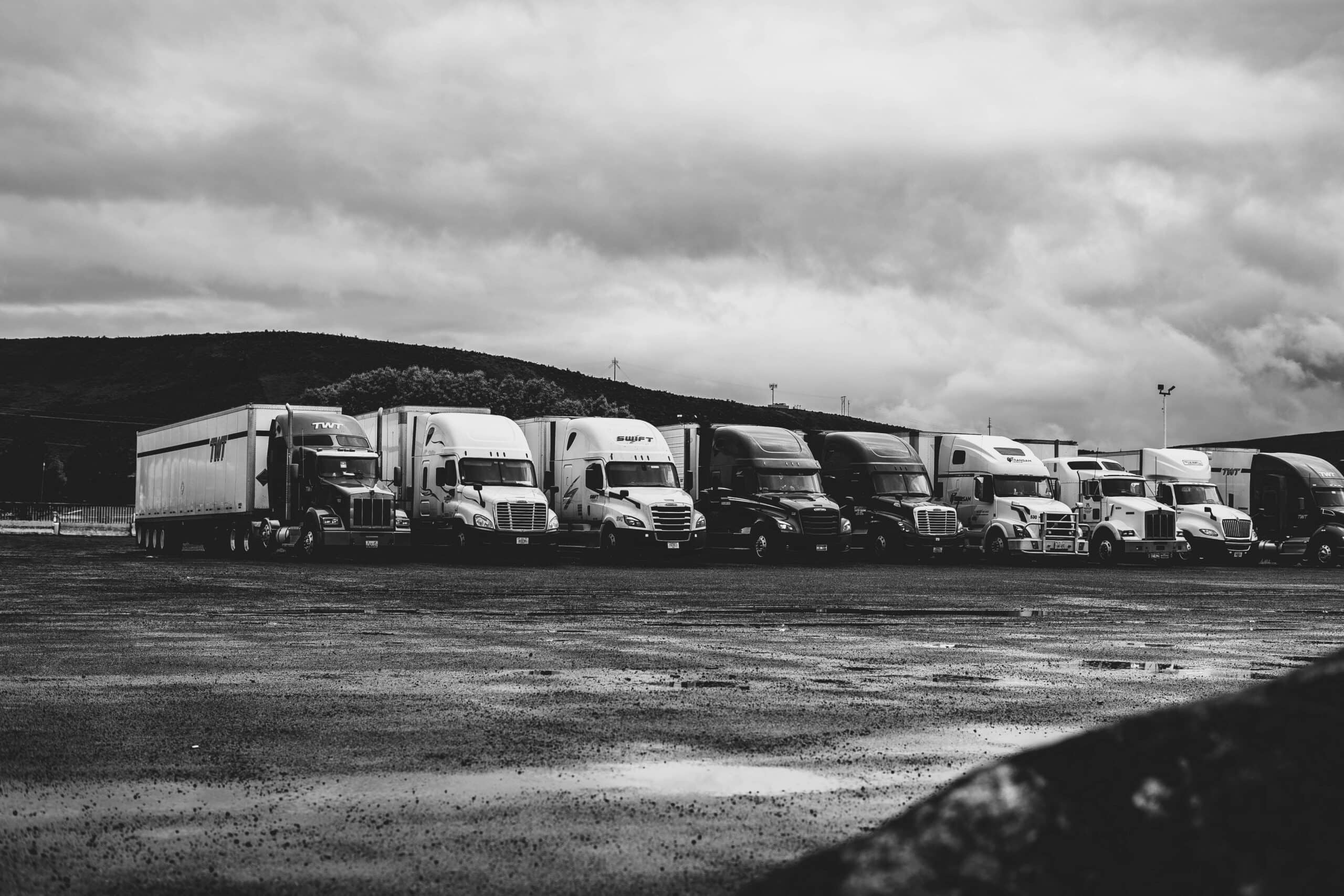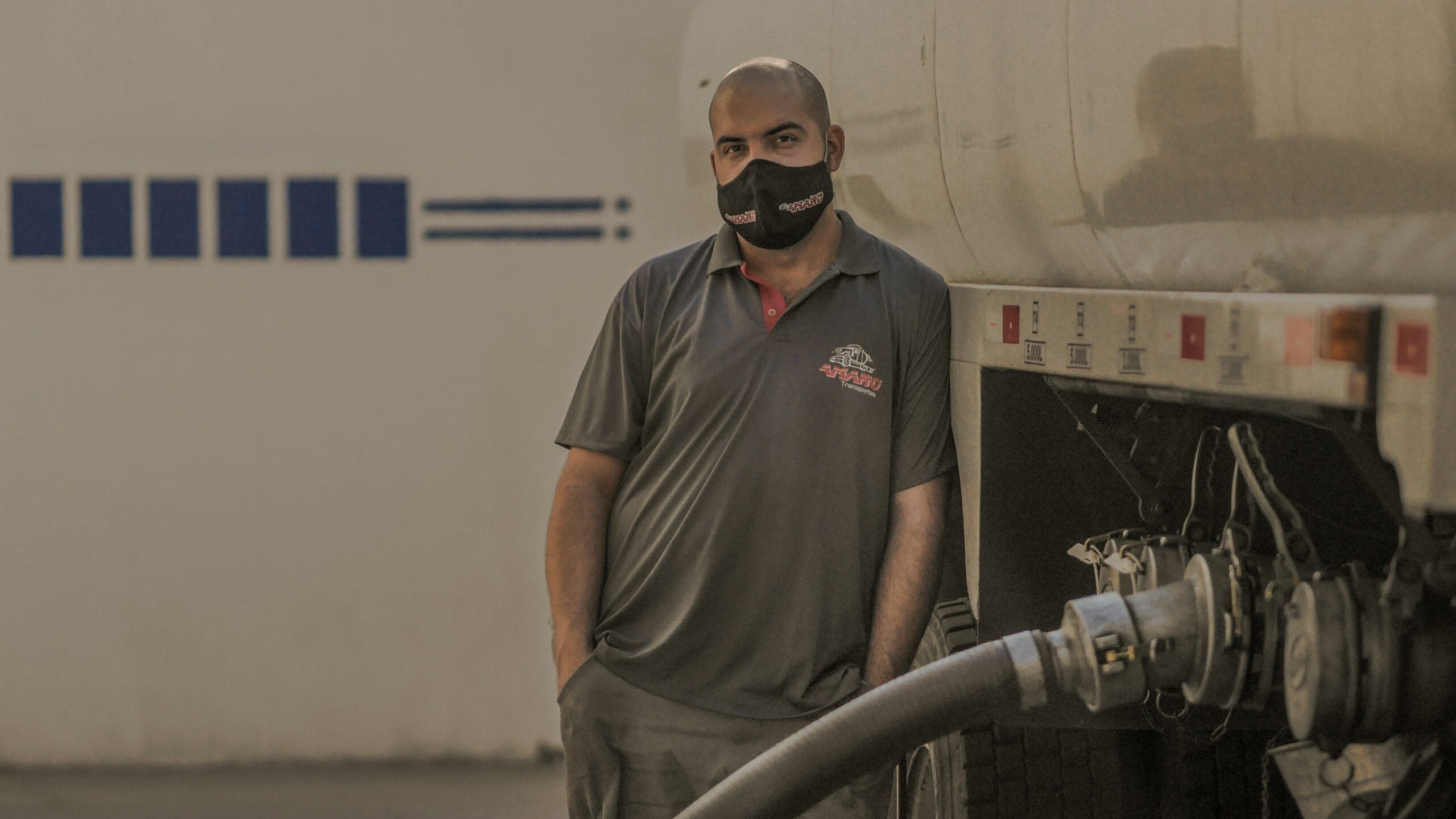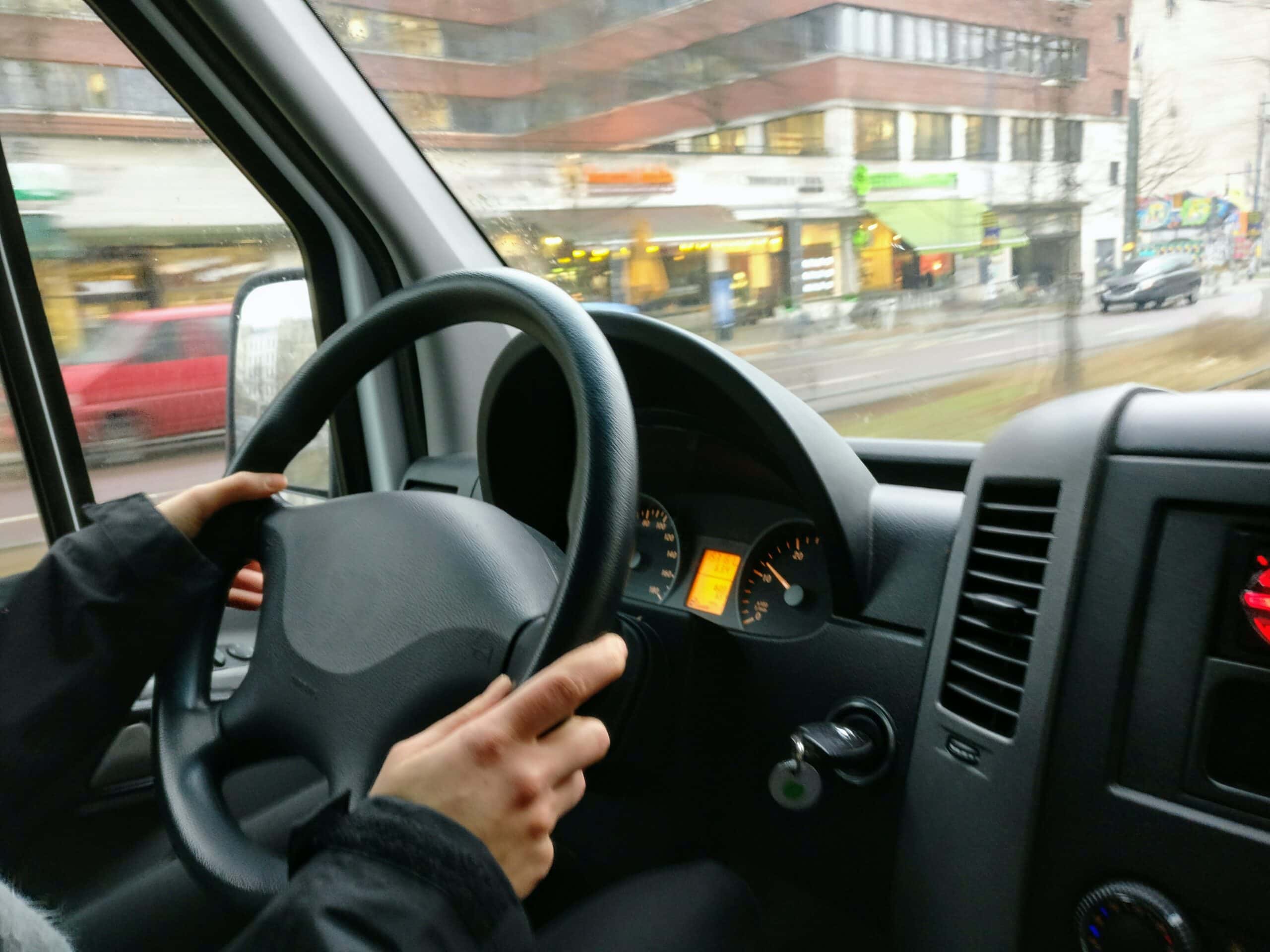How much does it cost to be an owner operator? To answer that, we’ll have to go into detail on what owner operators have to pay for. We’ll also need to talk about how you decide to pay for those things. Being an owner-operator is like running a small business, and that means that there are lots of things to consider when we’re talking about what it will cost you.
In other words, there isn’t just one easy answer here. How much does it cost to be an owner operator will depend on the choices you make, so we can only give you estimates based the different options you can choose from.

How Much Does It Cost To Be An Owner Operator: What Do They Have To Pay For?
A lot of people interested in becoming an owner operator don’t fully understand everything that they’ll have to pay for in order to run their business. Even experienced truck drivers don’t always know, because if they’re company drivers many of these expenses were handled by their company without them ever having to think about it.

The Truck
The biggest single expense is of course the truck. A brand new truck will cost at least $125,000, and could easily be as much as $200,000 if you want a really high-end model. A used truck can save you money, but it’s still going to cost at least $45,000 and can be as much as $100,000 for a used truck in good condition.
While it’s true that you can finance these trucks just like a car, you’re still going to need a big down payment. A 20% down payment is standard and you’ll have a hard time finding a loan if your down payment is lower.
So, how much does it cost to be an owner operator? At least $45,000, and it could easily be a lot higher. But that’s if you’re choosing to buy a truck. You could also decide to lease a truck if you wanted to.
If you can’t afford a down payment, leasing is a good way to get into the busines as an owner operator. However, you should expect to pay between $1600 and $2500 per month on your lease payments. You should also remember that you won’t be building any equity in your truck if you’re leasing.
Documentation
Many new owners don’t think about all the documentation that they’ll need in order to legally work as an owner operator. This is a big part of answering how much does it cost to be an owner operator. Trucking is a heavily regulated industry and you need to be sure that you have all the proper documentation before you get on the road.
You’ll need your MC/DOT number, which should cost around $300. You’ll need to register your business or LLC, which can be anywhere from $50-$300, depending on the state and how you decide to register. You’ll need your IRP credentials. A typical amount for that is $1,700 but the actual amount is based on how many miles you’ll be driving in each state.
You’ll need an IFTA decal, which thankfully is only $10, a BOC-3 form for interstate business which should only be between $20-40. And you’ll need your HVUT, which is about $550. Note that these prices can all vary somewhat from state to state. But a rough estimate of $2,900 in total for the necessary documentation is still a big chunk of cash.
Insurance
Carriers will typically require you to be insured before they allow you to drive for them. Accident insurance, unladen and non-trucking bobtail insurance and physical damage insurance are all needed.
Typical insurance costs are about $250-$400 per month, or $3,000 to $5,000 per year. Be sure you read the plan carefully, though. Some plans won’t cover weather events or “acts of God.” Unfortunately, when you’re on the road as much as a truck driver is, the odds of experiencing damage from such events are higher than for most of us.
That’s just your truck insurance, though. You also have to buy health insurance. Since you’ll be self-employed, you’ll need to shop around for your own plan. Depending on how you look at it, this could be a major plus or a major drawback of being an owner operator.
Shopping for your own health plan means you can buy onw that’s tailored to your needs. It could end up being much cheaper than your old health insurance if you’re in good health and can get by with a very basic plan. But it could be much more expensive, especially if your employer was paying your health insurance premium.

Fuel
You can’t answer how much does it cost to be an owner operator without mentioning fuel. Semi trucks burn through a lot of gas and fuel prices are only getting higher. You can easily spend as much as $70,000 per year on fuel. If you’ve bought a used truck, there’s a very good chance that you’ll end up spend more on gas than you will on your truck payments.
Each month you should plan on spending between $4,000 and $6,000 on fuel.This is one of the reasons trucking companies try so hard to minimize their fuel costs. Fuel is probably the single largest expense for any owner operator.
Taxes
Since you’ll now be responsible for paying your own taxes, you need to remember that you’ll have to set aside a bit more than you’re used to. Your employer is no longer contributing to social security and medicare for you, so that portion of your taxes will double.
Plan on setting aside between 25 and 30 percent of your weekly income for taxes. You’ll have to make quarterly payments to the IRS. It’s important to remember these, because if you miss one you’ll have to pay a late fee.
As you’re figuring out how much does it cost to be an owner operator, it’s a good idea to put the money for your tax payments in a separate bank account and instruct your accountant to make your quarterly payments for you. That way you won’t have to worry about it.
Your taxes will actually fall into four categories: personal, corporate, road use, and fuel. This can get very complicated very quickly, which is why it’s so important to hire a good CPA.
Food and Drink
You have to eat while you’re on the road. This is one expense you are probably used to already, so why does it matter for how much does it cost to be an owner operator? The answer is that you’re paying for everything else with your own money now, so you might need to rethink your food budget.
If you’ve been working as a company driver you had a fuel card to use at the pump. Your employer paid for at least a portion of your health insurance. They also paid for all the maintenance on your truck, as well as insurance. You’re paying for all of those things now, and you might want to rethink how much you spend on food.
For health reasons, too, you might want to eat out less. The dining options on the road for truckers aren’t usually healthy, and you don’t get much exercise either. Eating a better diet can really help you improve your health.
Many owner operators decide to buy a microwave and a mini fridge to go in their cabin so they don’t have to eat out all the time. This can save you a lot of money. And, you should also know that you can deduct the money you spend on food from your taxes- it’s called a per diem deduction.

Professional Services
As an owner operator, you’re running a business. You have to focus on a lot more than just driving the truck now. So, many of your regular expenses will be professional services. Fortunately, you can look at these services as a smart business expense.
That’s because they’ll help you run your business better and will likely help you earn more money. There are several professional services that owner operators commonly pay for. It’s surprising to many people, but part of answering how much does it cost to be an owner operator is talking about these services.
1. Broker fees.
You need to have a steady stream of loads to haul, and one of the best ways to guarantee that is to work with a freight broker. These brokers match truckers with shippers, and they can be a godsend. It’s one of the most reliable ways to find work as an owner operator.
But it isn’t free. As payment, they’ll charge anywhere from 10-20% of the gross margin on each load. Each broker sets their own fees, so shop around to find the one you like the best. Just know that unless you want to sign on with a carrier, this is probably the best, easiest way to find steady jobs.
2. Load board subscriptions.
Load boards are the trucking equivalent of job boards. Load boards let you find loads very quickly, and they also tend to be where you’ll find the highest paying loads. So some owner operators use them in addition to freight brokers, and some use load boards exclusively.
Instead of paying by the load, you pay a monthly subscription fee for the load board. Just like the broker fees for a freight broker, it’s worth it to pay these fees.
3. Factoring expenses.
Factoring is a vital service that controls your cash flow. If you don’t use it, you’ll be waiting a month, and possibly longer, to get paid for each job. With factoring, you essentially sell your invoice to the factoring service and they pay you right away, and then collect the payment from the shipper themselves.
You can choose between two types of factoring. Recourse factoring is cheaper. With this type, the factoring service will make a reasonable attempt to collect the payment but if the shipper doesn’t pay, you’ll have to pay back the factoring service the full cost of the invoice and then try to collect the debt yourself.
Non-recourse factoring costs more, but it protects you from non-paying shippers. The factoring service will assume the risk instead. The fee for a factoring service is usually between 2.5-5% of the invoice.
4. Transportation Management System subscription.
Unless you really, really love paperwork, you’re going to want a TMS subscription. These services handle all of that for you. They create and fill out invoices, and customer agreements. They can also generate detailed reports to help you see how well your business is doing.

How Much Does It Cost To Be An Owner Operator: The Margin Can Be Thin
One of the reasons why many drivers are perfectly content to remain company drivers is that the profit margins for owner operators can be terrifyingly thin. With all of these expenses you have to account for, the amount of money that’s left for you to take home at the end of the day can start looking pretty small.
On average, the profit margin for an owner operator is 5%. So, for every $100 you make, $95 will go towards your operating expenses. Your salary comes out of the $5 that’s left over. This is why it’s so important to understand what your costs are, and to find ways to minimize them.
Even a small increase in your operating costs can be devastating. With a 5% margin, it doesn’t take much of an increase in fuel prices or insurance rates to eat up all your proft. So, most owner operators are always interested in ways to reduce operating costs and increase their income.
Adding Revenue
Adding revenue seems, at first, like the better way to increase your income. The problem is, it doesn’t increase your margin. 95% of the revenue from any job is still going towards operating costs. If you add $50,000 in total revenue throughout the year, that’s only a $2,500 increase in your profit.
It’s crucial to understand this: adding revenue does not increase your profit margin. It will increase your income, but it will also increase your operating costs. It may not be nearly as helpful as you expect it to be. Adding $2500 in profit for the year might not be worth the added time spent working.
Reducing Costs
If you can use different driving techniques to improve your gas mileage, even by something as small as half a mile per gallon, you can save big. You could easily be spending $50,000 a year on gas, so finding a way to save 5% on fuel costs is financially equivalent to adding $50,000 in revenue.
And you’ll get that benefit without spending more time on the road. So, reducing your operating expenses is usually a better approach than adding revenue. It’s easier and you can often get the same benefit you’d see from adding revenue without nearly as much work.
Fixed vs Variable Costs
If you’re going to try to reduce costs, you need to know the difference between your fixed and your variable costs. Otherwise you’ll have a hard time understanding how much does it cost to be an owner operator. Fixed costs are expenses that don’t change, and that you can’t really reduce. Truck payments, truck insurance, health insurance, and permit fees are all fixed costs. You won’t be able to reduce these.
Variable costs are things like fuel, maintenance expenses, and food and drink. If you want to reduce costs, this is where you’ll be able to do it. Fuel is usually the biggest expense here, so even a small reduction in fuel usage can lead to massive savings. Keeping up with preventative maintenance can help reduce maintenance costs, and installing a fridge and microwave in the sleeper can keep food costs to a minimum.

How Much Does It Cost To Be An Owner Operator: The Final Word
Being an owner operator isn’t cheap, and it isn’t easy. Many people who ask this question are really just trying to figure out how much it will cost to buy the truck. They’re shocked, then, when they learn about all the other expenses that an owner operator has to pay.
But in reality, it’s not very different from any other small business. All small businesses have razor thin margins and need to find ways to minimize their expenses wherever they can. And all small business owners will have very similar kinds of expenses. They aren’t paying for a truck, but they’re probably paying for a building. They have the same kind of insurance expenses, too.
This is one reason it’s so important to approach becoming an owner operator from the mindset of a small business owner, not a driver. While you will be driving, it’s so much more than that. Your success as an owner operator will be determined by your ability to function in business.
If you like the idea of running a small business, you’ll probably like being an owner operator. It’s really just running a small trucking company with one driver. As long as you approach it that way, the costs of being an owner operator shouldn’t be too intimidating.
About Booker Transportation
Booker Trans is 100% Owner Operator. It is our belief that an Independent Owner is the best way to get a customers freight delivered timely and safely. Booker is a leading Refrigerated Carrier providing the best lease options in the industry for today’s Owner Operators. Monthly and Yearly Awards, Longevity Bonuses, and the Free tires for Life of Lease Program, are just a few examples of what Booker Trans offers the Owner Operator. Booker Trans has built it’s success upon working partnerships with Customers, as well as Agency Relationships built over the last 20 years. Those same relationships are what makes consistent year round freight possible.
Are you interested in becoming an owner operator driver or getting into the logistics industry?
Let’s connect!
Navigating the Highways of Change
04/18/2024

Owner Operators should be prepared for Cellular Service outages!
03/06/2024

